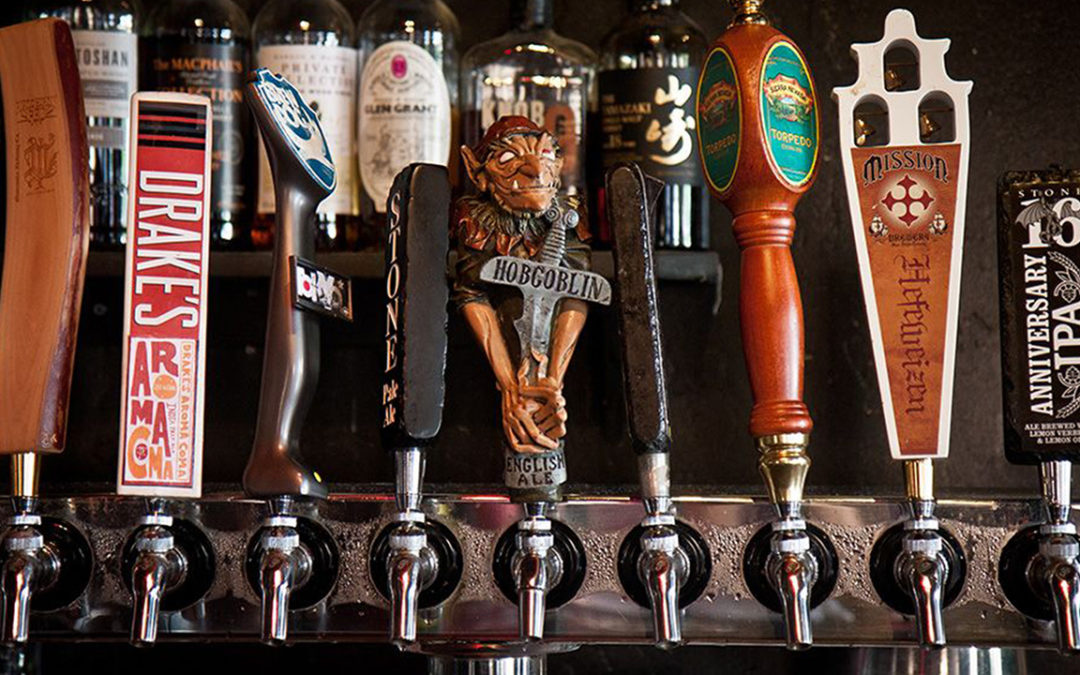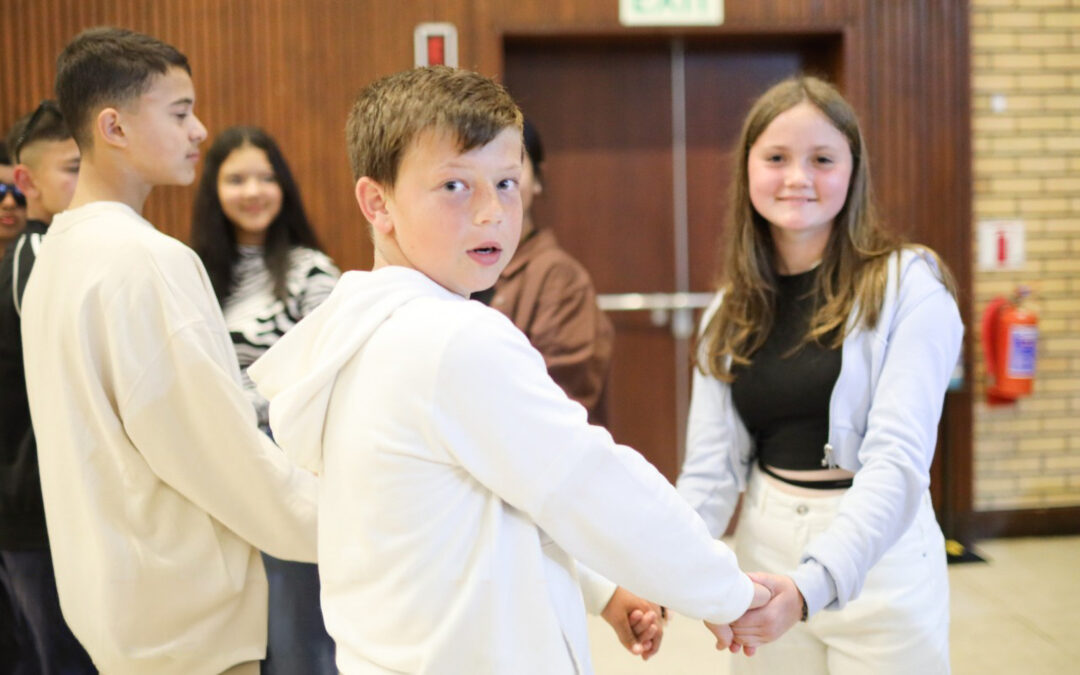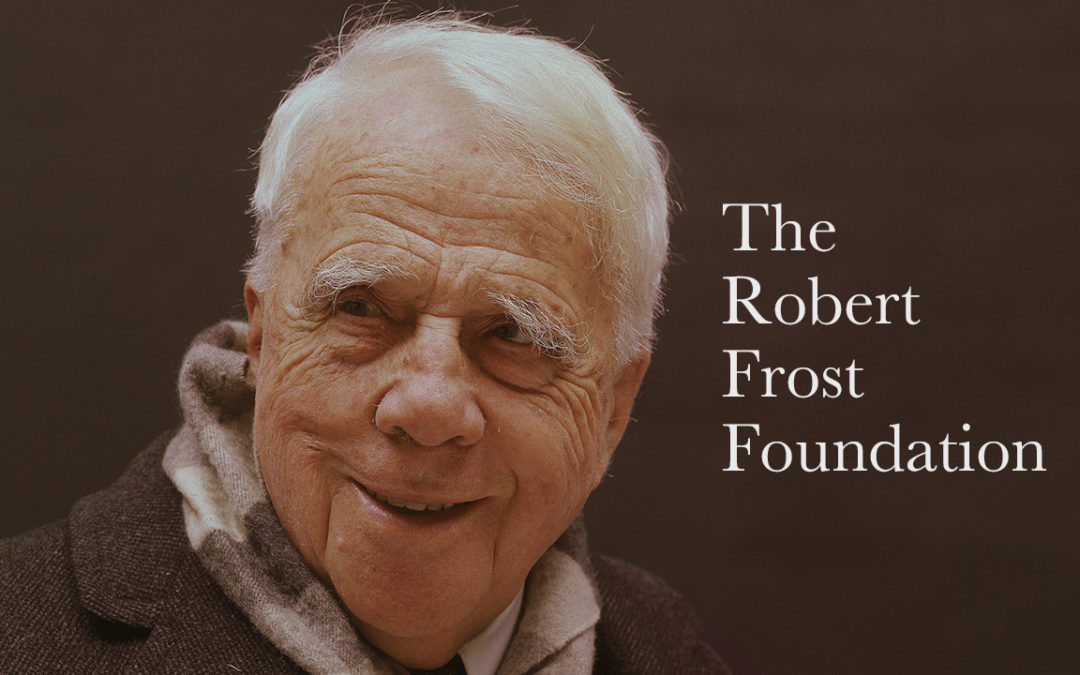
by Robert Bowie, Jr. | Dec 6, 2022 | Featured, Personal
You do know logic has its limits…
If you spend a lot of time outside the reach of sunlight, it can create two different parallel psychological worlds.
Back when I was in college, the world was roughly broken into those who believed that “you are what you eat” and those who believed “you are where you smoke and drink.”
It was sort of like the difference between light and dark.
It was the health food people of the Age of Aquarius vs. the hedonists. It was the difference between “Hello,” which has one meaning, and “Hi,” which has two.
Back in college, I was a bartender in a now defunct basement bar in Harvard Square that had no windows.
Upstairs was a high-end restaurant. Its clientele would briefly wait for their table while the rest of our patrons were occasional walk-ins from the street or the regulars who had self-imposed assigned seating every night around the horseshoe shaped bar at which I held court.
There was a juke box and maybe ten small tables with un-emptied ashtrays and an electric candle with a little red shade. I noticed the atmosphere was not conducive to romance when I would announce last call.
Because I am a caring person, I learned that I could control the future behavior of the patrons from behind the bar.
If I turned the jukebox up, dimmed the lights and mixed strong drinks, I could make a wild party, but if I wanted calm, I could make weak drinks, turn up the lights and turn down the music.
Also, because I was a caring person, I got to thinking there could be variations on this theme: Consider strong drinks, dim lights and soft music when I announce last call. Much better. More conducive to romance, or at least intimacy.
Now consider each table as an event onto itself. Dim lights, soft music, and half price to try a glass of our new champagne.
Hey! We making babies now!
I got to thinking I had magic powers, that I was sort of an invisible Cupid.
Wait! No! That’s what too much darkness will do to you.
At that very moment, I realized that I was no longer a caring person. I had become a puppeteer!
I didn’t want to think of people that way. So I had to find alternative hypotheses, but I was still working in a basement bar with no windows.
I wanted to test my new theory that, generally, the amount of alcohol consumed had no effect on the size of the tip.
I decided to work New Year’s Eve, which at that time went on until 2:30 in the morning. Drunk or sober, the tips were pretty much the same, although after 1:30 they were supplemented by all forms of contraband, which was not what I needed.
What good is control if you don’t get what you want? There is no barter, or like-kind exchange, when you are holding contraband and you really need toothpaste.
Woe is me. Logic had failed me.
But then, it’s hard to use logic to justify your existence as a bartender in a windowless basement bar.
Here’s the proof:
You can’t really stop people who are 52 years old and ask if, by chance, they knew whether their parents happened to be drinking in a now-defunct basement bar in Harvard Square with no windows nine months before they were born.
Alas, logic has its limits.

by Robert Bowie, Jr. | Nov 22, 2022 | Featured, Personal
For my friends and me, life was abruptly changed on the after school athletic fields in the spring of our eighth-grade year, when all of our parents signed us up for dancing school.
My friends and I were all told it was a non-negotiable part of our education.
We were divided on the subject, until one of us confessed that in church he had recently prayed to God that he be allowed to live long enough to experience sex.
We found this to be reasonably compelling and it was sufficient to open the door for the rest of us to give in and accept the inevitable.
We had been given no previous training for this.
My preparation for dancing school was to wash my hair and then soap and rinse myself several times until I was squeaky clean, then do pull ups on the shower curtain rail in front of the mirror until I began to perspire and I couldn’t do anymore, in order to improve my physique.
Dancing school started at 4:30 pm. It was held in the middle school cafeteria at our all-boys day school. After lunch, all the tables were moved to one side, the chairs were placed side by side along opposite walls, and a piano was rolled into place.
Our instructors, Mr. and Mrs. Knot, were a husband and wife team who appeared to be in their 30s. The husband played the piano, smoked constantly, and showed no enthusiasm. We all liked him from the start.
His wife however was stern, and dressed in black high heels and a low cut black dress that featured her remarkable figure. From the start we had a problem. We couldn’t look at her, but we couldn’t take our eyes off of her.
Mrs. Knot would single out the tallest boy to dance with her. She would teach him the steps while the rest of us watched. We were then lined up with the girls from tallest to shortest and we could repeat their example.
Mrs. Knot soon showed the boys how they could politely change partners on the dance floor by tapping a boy on the shoulder.
One of the shortest boys in the class, who had big glasses, tapped Mrs. Knot’s dance partner on the shoulder in what appeared to be a shameless attempt to gain favor with his teacher. She appeared to approve, until they began to dance and she realized that her high heels and his height had placed his nose in her cleavage and his glasses were focused squarely on her breasts.
The girls were at least a head taller than most of the boys and, after a week or two, Mrs Knot announced a “ladies’ choice.”
The ladies’ choice turned out to be an extremely athletic event. The girls were choosing boyfriends but we didn’t know that.
They would slowly stand and walk toward their target, but if there was competition, they would pick up the pace and start running. There were times when two competitors, in an effort to get their boy and also to stop, would pile up and slide under the chairs where we were sitting.
The situation grew more mature. Later that spring, I had a girlfriend for almost a month, but I didn’t know that until she dumped me.
This was not unusual. Attachments were formed and broken in many cases before a boy even knew he had been going steady.
I was in my second relationship and didn’t know it until I was informed that it was over. I was told by a girl who I didn’t know that I had just broken up with a girl and that I was now available.
As the classes drifted into spring, the more adventurous girls would talk their parents into parties in the basement of their home.
They were all pretty much the same. They featured a record player and rotating chaperones to make sure nobody danced close during “Moon River.” The rule was stiff-arm dancing with visible open space between the dancers.
As the spring finished up, the chaperones and other parents migrated upstairs and gathered in the living room for cocktails. Occasionally, they would do sneak attacks or peek down into the basement to make sure the lights had not been dimmed or turned off and people were not dancing close to “Moon River.” They always claimed they were just making sure “the snacks had not run out.”
By summer, we had made friends with girls and even fallen in love and knew it.
Something beautiful had happened that spring. Nobody really knew what it was other than a transition, but it was beautifully woven together as a right of passage for everyone, including the parents.
The following spring, as upper-school ninth-graders, we would spill out of school at 4:30 pm and look in the windows of the cafeteria as Mrs. Knott waltzed her way through another dumbfounded eighth-grade class.
We had friends that were girls now, and we even knew enough to know we had girlfriends. I had even learned to do pull ups before the shower.

by Robert Bowie, Jr. | Nov 8, 2022 | Featured, Personal
It is funny how a stranger’s aging face will never reveal the face of its youth. However…
A little less than a month ago, I went to a beautiful warm sun-drenched October wedding on the edge of a calm harbor in New Bedford, Massachusetts.
On the lawn, an hour or so before the wedding began, a small group of old men slowly gathered and greeted each other. Some had not seen each other for almost 50 years.
We had become friends long ago during high school, as a diaspora loosely formed by outcasts of various different New England schools. We had all been transferred or expelled from someplace, in several cases more than once, because of undiagnosed learning issues and/or an intransigent attitude, and thus had been prematurely released upon the world to get our education on our own terms with far less supervision.
No harm done. Most of us survived and had lived interesting lives of our own making and all of us had stories of our adventures along the way as we talked out on the lawn during that evening, or later on the phone. Nonetheless, we had bonded quite profoundly from our common experiences back then, and these stories and adventures defined who we believed we were.
As we told the stories about each other, the mask of old age dropped from our faces.
There was one friend who was not present as we rekindled old friendships and plowed through our memories.
The bride’s father had included in the program an “In Memorium” section that included those who had been lost along the way. One of our lost friends, let’s call him Brad, had been the bride’s godfather before his death.
Brad had been lost at sea years ago.
I didn’t know him as well as some of the others but I remembered, early one spring day, going down to the boatyard he used on Cape Cod, and watching him paint the waterline high on his boat to cover the approximately 2 1/2 tons of contraband that he expected to be bringing back from Jamaica a little later that year.
It was his custom to avoid returning by the Windward passage where he might be apprehended and instead sail far out into the Atlantic, then head north for an extended run, and then hug the shore as he traveled south back along the coastline in order to appear to be a tourist sailing down to the Cape from Maine.
He was a brilliant unflappable sailor.
One of his friends remembered how he had sailed back with him from Morocco, along with contraband, when Brad’s 37-foot deep keeled boat suffered debilitating electrical equipment failure. Brad then navigated without the aid of instruments, solely with a sextant, and expertly traveled down to the edge of the equator. As the sun came up one morning along the expansive horizon, he had watched “a thousand little squalls, each with rainbows beneath them in the sunrise” as Brad had navigated cross the Atlantic and hit his target, Antigua, perfectly.
Once freed from formal education, Brad was largely self schooled, but was well read in history, loved the Sherlock Holmes stories, and Shakespeare.
He was a wonderful and engaging companion. However, his freedom had not made him a saint. He indulged his ”weaknesses,” as he put it, sometimes at the expense of others as he enjoyed his world.
Early on, one of this group, who had become a lawyer, had been called upon to bail him out of a Jamaican jail where he had been held for some time.
He joked that he had been instructed to bring a little extra money to ensure his extradition, a fresh dry-cleaned white shirt folded on a cardboard back the way he liked it, and pressed pants, because within a half hour of his release they would both be drinking Remi Martin at a Jamaican bar.
We all knew Brad would not always be so lucky. He spent almost three years in Fox Hill prison in Nassau, and a year and a half imprisoned in Morocco, but it was the independence in him that we chose to remember.
No one knows for sure how he died.
He always had enemies in the trade, but he had also made good money doing commercial fishing off the New England coast. He disappeared offshore in the Atlantic during a squall off Cape Cod.
Nothing was ever found of him or his boat.
All the sailors in the conversation agreed that to leave no flotsam or jetsam behind was highly unusual.
The conversation turned from a general discussion of the squall to jokes about how improbable it was that the squall was really his cause of death.
Someone chimed in about how Brad had one time taken his boat to ride out a hurricane off Florida because being tied up at a dock would be more risky. However, when he had returned afterward, there were footprints on the ceiling of the cabin because his boat had rolled completely over during the storm.
Another friend suggested it was more likely that Brad had been hit by a freighter on the commercial trade routes that never saw him. Others who knew him well believed it was a settlement of old scores by others, and he had died with an anchor around his neck and his boat had been dragged back, repainted, and was now repurposed somewhere on the inland waterways, probably down south.
“No,” one of them chimed in. “He’s alive in Hawaii free of his enemies and debts.” One friend laughed as he peeled off toward the bar. “If he was alive, he would be here. He is the bride’s godfather. Remember how he had come to her high school graduation in a white suit? He took this stuff seriously!”
It is funny how old bonds of real friendship never break and how, when you see an old friend’s face, the young face can be reconstructed from a familiar smile or a remembered look. It is both a resurrection from the past and rebirth into the future.
Brad is still forever young for us even now, 50 years later, as we are for each other.

by Robert Bowie, Jr. | Oct 18, 2022 | Featured, Personal, Poetry
Last Tuesday, October 11th, at 7 pm, the Robert Frost Poetry Foundation hosted a Zoom reading by the winner and ten runners-up of the annual 2022 Robert Frost Poetry Contest. The winners came from as near as New York and as far away as New Zealand.
I was extremely fortunate to have my sonnet, “Summer Thunderstorms,” chosen as the first runner up. This is a real honor.
These readings lit me up!
Every single one of the poems was exquisite but what was personally wonderful for me was Helena Minton, who I have not seen since high school, was on that call. This high school, the Cambridge School of Weston, was a remarkable place because it respected the arts as a part of life rather than a collateral activity.
Helena and I were both on the board of the literary magazine of the Cambridge School of Weston. Also on that board was Susanna Kaysen, who wrote “Girl Interrupted,” which became a movie starring Winona Ryder. Helena has also become a well respected writer. The Boston Globe recently gave her rave reviews for her new and selected poems entitled Paris Paint Box, which I have read and highly recommend. I cannot name every member of that high school board, but they each were accomplished writers even in high school.
As I remember, we met once a week in the basement of one of the school buildings, and our faculty advisor was Mr. Pastorini, who took this stuff seriously.
The quality of the work that we received for publication was consistently very high and we learned from each other as we shared our perspectives about the submissions by our schoolmates.
I raise this because, again and again, I realize that the seeds and roots of my efforts now, fifty years later, to create a second career as a playwright and poet were planted and nurtured at that school and in that basement.
A month ago, the little library near where I live offered me a chance to teach a class in poetry. I am going to teach it in the same way as I was taught. We will learn from each other in a nurturing environment.
I have also been invited to start an open mic at a newly created independently owned cultural center in Monkton, The Manor Mill. I will try to support it much the way Mr. Pastorini ran that school magazine. We will learn from each other in a nurturing environment.
Finally, I had lunch yesterday with Allen Reese, who is a well respected poet, professor and previous publisher, to learn how to put together a small press to support the class and the open mic readings.
The real heroes, however, are Angelo Otterbein, the entrepreneur who created the Manor Mill only a year ago. It is growing into its future as a home for all the arts — from the visual arts and crafts, music in all forms, and writing. Similarly, Cynthia Weber at the Hereford Library opened a room and planted chairs in a circle for my class, with several recommended poetry books on a table nearby.
What little I can do I owe to these new and old friends who have nurtured me and given me the unbridled courage to be a little different and to create.
Do unto others, especially when others have done right by you.
———
Summer Thunderstorms
As with the generations long since dead
The fire and brimstone of the status quo
Wakes him up from the safety of his bed
And lightning frames him in the window
And photographs him in its afterglow.
Tonight he feels his present and its past
As the summer storm also comes and goes.
Conclusions are foolish in a world so vast.
For at the edges of his world and heart
Far past the farthest boundary of his grasp
Where ideas cause worlds to come apart
He lives in this place that will not last.
He loves his life more than he can explain
And leaves the window open to hear the rain.
———
I hope you will consider joining all those who taught me that the arts are at the heart of life. You can find An Accidental Diary on Amazon and, after you have enjoyed it, please spread the word. Give it away. The arts are not just a collateral activity.

by Robert Bowie, Jr. | Oct 11, 2022 | Featured, Personal, Politics, Travel
I have twice lived in a divided country. The first time it still had American kindness and we could still talk.
The Vietnam War had divided my country in 1968. I was hitchhiking because I wanted to abandon all of that, and be together with American strangers and their kindness, which was how we defined ourselves. I wanted to believe.
I got rides from both sides.
A senior Marine officer in a convertible had taken me into the PX at Parris Island to buy tax-free cigarettes. The marching soldiers on both sides of his car stopped to salute his license tags when he brought me in and then returned me to the highway.
It was a kindness he offered to me.
I had changed my mind late that summer. I had made it to California, but decided to head back to be with my father in Easton, Maryland for his birthday at the end of August.
The Democratic Convention in Chicago would be happening in about week. Violence was predicted.
Because it had been impulsive and I had started late, I tried to hop an eastbound freight train in Cheyenne, but I got caught and was mercifully dumped back on Interstate 80 East by a gruff but kind state cop who told me to disappear in 30 minutes because he was coming back.
Within 15 minutes, I got a ride from a boy dressed as a rhinestone cowboy in a white convertible with the top down and Iowa tags. He was heading east to Fort Dodge. He was going home to see his father. This was good. It would be a 660 mile ride so I would make up lost time and we were going to get to know each other.
He told me he had spent two years in Vietnam and was a war hero. He told me he had spent a year in Wyoming herding cattle. He told me that the night before, he had been in Las Vegas with girls in the front seat and girls in the backseat and had won big at the slots and had decided he wanted to see his father back in Fort Dodge. We drove nonstop all afternoon and all night laughing, smoking and talking. From the start, we liked each other.
We were Americans and therefore brothers by accident.
When he pulled over for gas, he bought me cigarettes, a can opener, and a can of peaches. It was a kindness he had offered to me.
As we rolled down the highway, I forked out the peaches and drank the sweet syrup. He told me about his life in Vietnam and the year he spent out on the western ranch, and how much he loved his father.
As we turned off the interstate and entered Fort Dodge dawn was breaking and, as the sun was coming up, he parked the car in front of a broken house in need of paint and shutter repair. The front door was unlocked and two of the windows in the front of the house were broken.
When we entered the house, there were slats missing on the staircase going up to the second floor. Beer cans littered the floor and overflowed out of a trashcan next to the refrigerator.
Before the boy went to wake up his father, he opened the refrigerator and handed me a beer. Then he took two more and excitedly bounded up the staircase.
There was loud coughing from upstairs and after a while the boy and his father came down. The old man was weak and had phlegm in his lungs. He didn’t look like he was long for the world.
I wanted to leave them alone so father and son could be together. I asked if I could take a bath upstairs. They said no and pointed at a wash tub, tilted against the stove. I was told there was no hot water but I could heat water on the stove and mix it with tap water and bathe while we drank breakfast.
So I did.
I was happy in my warm and soapy water thinking about how soon I would have a “dishpan body” as I sat in a washtub in the dawn drinking beer.
It was clear the boy and his father loved just being together. They joked, laughed, and chided each other as if they were long-lost friends.
After about a half an hour into my bath and after more breakfast beer, there was a knock on the door and two police officers entered the unlocked door without permission.
I obviously was in a considerably compromised position, but the officers paid no attention to me.
Chaos broke out. The car I had been riding in apparently had been purchased about a week ago with stolen money. Both the father and the son were confessing to the police officers to save the other. The officers arrested the boy, handcuffed him, and took him away in a squad car. The father burst into tears and told me the story.
The boy had just been released after seven years in prison for smoking marijuana. He had not served in Vietnam or been a cowboy, but he had won big in Las Vegas with money his father had given him. The boy had come home to give his father money to pay off the used car his father had bought for him.
After his father had given the car to his son, he had ordered him to leave and go west to start a new life. He instructed the boy to not come back but his son could not resist sharing his good fortune. They had only each other in this world.
The old man continued to drink beer, cough and smoke cigarettes at the kitchen table. The more he told his son’s story the more he drank and the more he cried. Somewhere around noon, he took off for the police station on foot in an effort to do what he could for his son.
I had not slept since before Cheyenne so, when he left, I put my duffel bag under my head and I curled up on the floor and slept for a while. I woke up late in the afternoon. The father had still not returned, so I threw the knapsack over my shoulder and headed out to try to catch a ride.
There was a United States post office hub in Fort Dodge, so I hung around there until I got a postal driver to let me ride shotgun to the mail district in South Chicago. As I was let out, I got cat calls from some of the postal workers who were waiting to punch the clock to begin their shift. Mayor Richard Daley was fighting the demonstrators outside of the convention.
From Chicago, I got short rides through Ohio, Pennsylvania, and then across the Bay Bridge on to Maryland’s Eastern Shore. My last ride was from a tow truck driver, who had never left the Eastern shore, and never been on a boat.
During those last short rides, I kept thinking about how different we all were, but how we could talk and share our lives, and how each person had enriched mine.
That is America to me. That is what will make us great again.
I got to Easton on my father’s birthday, and the prodigal son was welcomed home yet again.





